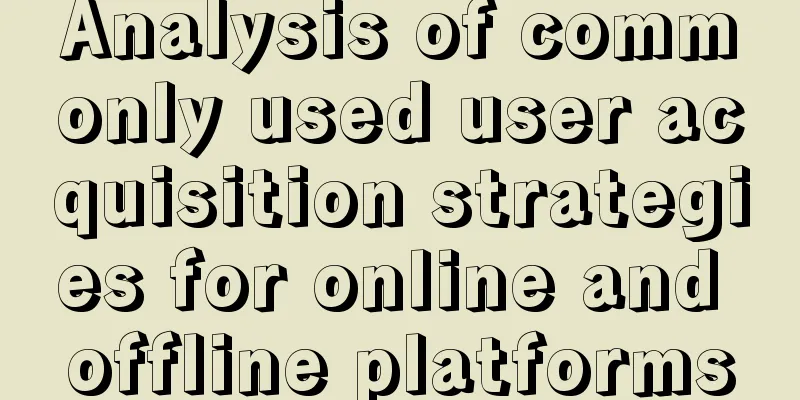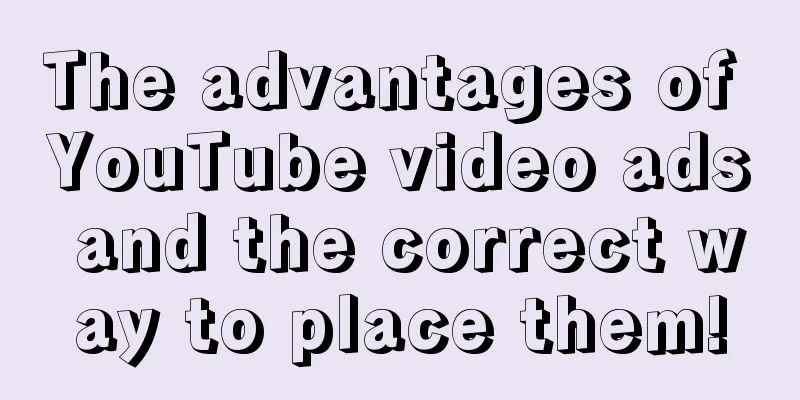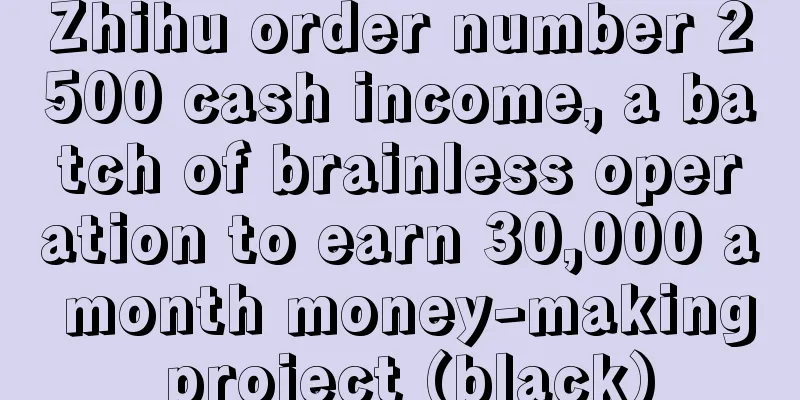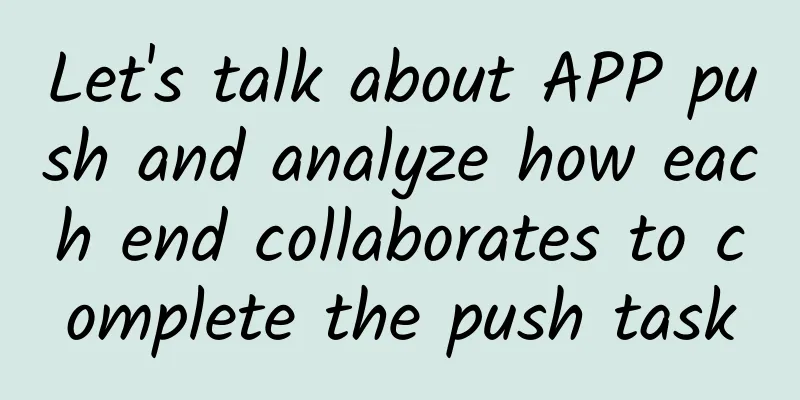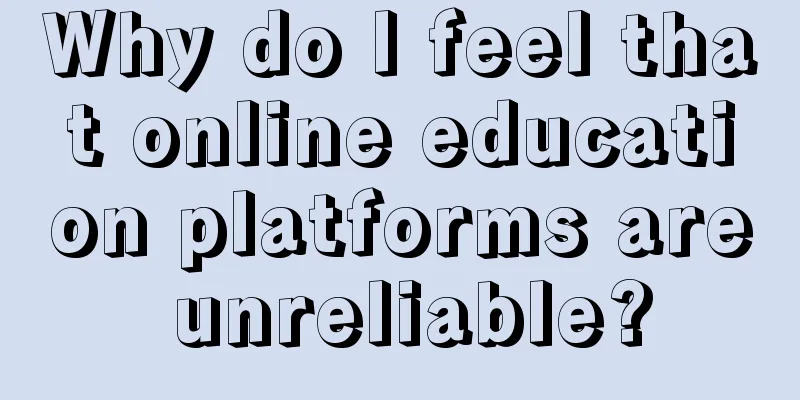Zuckerberg pays tribute to WeChat, but can Facebook Pay be as successful as WeChat Pay?
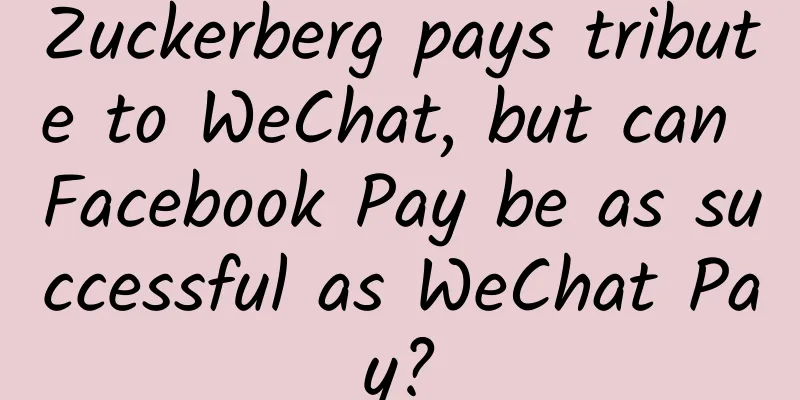
|
The digital stablecoin Libra has failed, what will Facebook do next? The answer that many people did not expect would be software mobile payment. The market's reaction to these two financial explorations is also very different. When the Libra white paper was released in June, Bitcoin soared by two times. On the day Facebook Pay was announced (November 12), Facebook's stock price only rose by 2%... It’s no wonder that everyone is not very enthusiastic about it. In the field of mobile payment, Facebook will undoubtedly face strong competition. There is Apple Pay, and there are PayPal, Google Wallet, Line Pay, Alipay, WeChat Pay, etc. The existing products of these giants all have remarkable user scale and business models. Facebook's proud user advantage and social ecology will also be ruthlessly diluted under the high barriers of these mature payment channels. What's more, it has been on the top "blacklist" of privacy leaks in various countries. Whether it can reach the same heights as financial players is a question mark. What is more interesting is the intention and future of Facebook Pay. Facebook pays tribute to WeChat, starting with paymentEarlier this year, Zuckerberg left a comment under an article titled "What Facebook Wants to Learn from WeChat" - "If only I'd listened to your advice four year ago...", expressing his regret for not learning WeChat earlier. One of his ways of "making up for his mistakes" is to connect the four major "global products" of Facebook, WhatsApp, Instagram and Messenger to build a Facebook-style social empire. The essential universal infrastructure is the payment system. It has to be said that as soon as Facebook Pay’s product model was launched, it seemed to be a tribute to WeChat Pay. Unlike Libra, which Facebook has previously promoted with great fanfare and has the potential to subvert the US dollar system, Facebook Pay is very easy to understand because it is not much different from the current mainstream software payment tools. It can be bound to card issuers such as Visa, MasterCard, and PayPal through a social account, and then used in Facebook's social software. Users can use it to transfer money, shop, pay for game props, etc. At the same time, Facebook Pay resolutely drew a line between itself and the obstructed Libra, stating that it and the digital wallet Calibra (one of Libra's projects) are two completely different systems. Without the grand ideal of subverting the payment field, it is just a plain payment tool. It is not known whether there is a maximum limit on the amount of remittances. From the official demonstration video, the transactions are all small amounts. Whether Facebook Pay can play the same role as WeChat Pay in financial service facilities remains to be determined. However, since its positioning and functions are similar to WeChat Pay, no one would object to using similar standards to evaluate its potential. Taking the "Zhongnan shortcut": How did Facebook Pay debut?First of all, we must admit that in the United States and other global markets, mobile payment is not as popular as eating and drinking in mainland China. Although Facebook Pay did not take advantage of the first-mover opportunity of mobile Internet, it is not too late to make up for the loss. Statistics show that nearly 80 million people in the United States currently use mobile payments, accounting for about 24% of the total population of 330 million. Moreover, many of them are dissatisfied with Apple Pay and find Google Wallet inconvenient. Samsung Pay users are also dying as the smartphone market share is lost. From this perspective, Facebook Pay, which occupies the social lives of more than 2 billion users worldwide, still has considerable room for growth. At the same time, everyone knows that Facebook is trying to build a global payment transaction network with the help of Libra digital currency. Now that the future of Libra is uncertain, using existing network facilities to build a financial system, and then with the connection and accumulation of data, driving the growth of advertising, e-commerce, finance and other businesses in the entire Facebook ecosystem, is a shortcut in the whole game. The confirmed news is that Facebook Pay supports shopping in Facebook shop, and with the super traffic of one-third of the world's population, its basic volume even exceeds that of WeChat, which it imitates. Back then, WeChat Pay relied on the blessing of social + entertainment scenarios and quickly caught up with Alipay to become a duopoly in the regional market. From this perspective, the impact of Facebook Pay on traditional payment methods such as PayPal and Apple Pay cannot be underestimated. The special significance of Facebook Pay to Facebook lies in the United States' "anti-monopoly" interest in leading technology companies. Since 2019, antitrust investigations into leading tech giants have been a hot topic in the U.S. government, and the FTC has already launched an antitrust investigation into Facebook. Earlier this year, Facebook co-founder Chris Hughes published a long article calling for the breakup of Facebook (arguing that it had neglected security in order to expand). In this case, by integrating the financial transactions of various products through Facebook Pay, cross-platform transactions will make Facebook's overall financial connections more complicated, thereby delaying the possibility of a split. According to the strong stickiness logic of Chinese social products, once Facebook Pay completely integrates its application transaction business, the potential energy it brings is enough to break through several daily limits. Why is the capital market so cold to Facebook Pay, with only a humble 2%? Oranges from Huaibei: WeChat and Payment: What Facebook Can’t LearnThe seemingly unscientific cold reaction is a true reflection of the saying "Oranges grown in the north of the Huai River become bitter oranges". At present, the differences between WeChat and Facebook have led to completely different expectations between the two: 1. Both are social activities, but the scenarios are different. At present, Facebook is also trying to boost its payment business with the help of social networks. However, compared with WeChat Pay, which can be used for diversified and all-round payment scenarios such as ordering takeout, online shopping, riding shared bicycles, and even borrowing money from a bank, Facebook's payment scenarios are still quite limited after integrating social, communication, and photo apps. Although Zuckerberg once said in his transformation strategy that Facebook will be built into a super application that integrates calls, videos, office, e-commerce, and electronic payments in the future, it is obviously not a layout that can be completed quickly from a media business (advertising revenue accounts for 98% of Facebook's profit source) to a comprehensive ecosystem, which also brings great uncertainty to the development of Facebook Pay. 2. Same payment method, but different environment. Although the market potential of overseas mobile payments is still huge, it does not mean that Facebook Pay will be the first to reap the incremental dividends. Google launched Google Wallet as early as 2011, Amazon's Amazon Pay was launched in 2015, and Facebook Pay has been testing the waters for three years with Messenger Payments, not to mention Apple Pay and Apple Card. Each of these giants has a huge global business support and is constantly making moves, but currently only Apple Pay, which has a very high reputation for security and uses NFC technology, can be said to have achieved some success, while almost all others have encountered concerns about information security. At the same time, the construction of network infrastructure in overseas markets has not been fully rolled out, and payment scenarios are naturally unable to be fully connected. Most scenarios still require traditional payment methods, and mobile payments are difficult to show a crushing experience advantage. A survey report by CreditCards.com shows that more than 60% of Americans say they never or almost never use mobile phones to make payments. So in the face of frequent information leaks, even if Facebook claims that its own payment tool is seamless and safe, its persuasiveness to its users is obviously not as good as the inherent mass base and network environment of WeChat Pay when it entered the market. 3. Same technology, different orientations. It is not an exaggeration to call a financial tool with billions of users the public infrastructure of the cyber world. Whether it is the high global attention and vigilance caused by Libra or the high fines received for privacy issues, it shows that Facebook needs to constantly challenge management red lines for a beautiful growth curve, whether out of values or performance pressure. This also makes it difficult for people to believe that Facebook Pay will stick to the bottom line in the face of high-value transaction behavior data. Compared with Facebook's repeated attempts to challenge policy regulation, it is clear that Chinese Internet companies have a higher level of political awareness. Under the idea of "the government manages the platform, and the platform manages the ecosystem", the platform has a stronger public awareness in terms of system updates, technical control, and social welfare, and to a certain extent avoids the financial security issues caused by network technology risks. Building a firewall between technologies for those who are least familiar with the Internet is the inevitable mission of "public service-oriented" technology companies. From this we can see that the rise of payment tools is not necessarily related to the social ecosystem. If you want to convert the scale advantage of social users into payment fans, you need to build a sufficiently large and complex fermentation field to cultivate a jar of sweet jade. Even giants like Facebook or Apple cannot easily replicate their past victories. This may also be the charm of technological evolution. |
>>: Due to too many bugs, Apple plans to make major changes to the development model of iOS 14
Recommend
The top scorers of the 2020 Lianjiang College Entrance Examination in liberal arts and science are announced: Lin Mengqing and Zhuang Yifei
The top scorers of the 2020 Lianjiang College Ent...
The difference between iQiyi splash screen ads and information flow ads
Often, advertisers will ask, iQiyi has so many ad...
The hot 2022 Chengdu new tea arrangement is worth collecting
Reservation arrangements for Chengdu new tea: 135...
When will the 2020 college entrance examination score line be announced? 2020 Anhui College Entrance Examination Results Release Query Time
After more than ten days of intensive review, the...
Should you try full stack as a programmer?
[[152872]] When programmers see the concept of fu...
The valuation impulse behind Xiaomi, Meizu, and Hammer's concentration on the low-end
Yesterday, Smartisan released its 1,000-yuan smar...
Anhui lifts lockdown: Which public service places can open? Attached notification details
As the number of confirmed cases in Anhui is redu...
What you must know about information flow advertising!
It is an indisputable fact that the entire Chines...
Master Fang Wenshan shares his lyrics writing course
Master Fang Wenshan responded that he is the best...
How to verify V on TikTok? How to add contact information on the company homepage of Douyin Blue V account?
We often see a "Contact Information" la...
E-commerce activity review: How to efficiently achieve data-intensive operations?
In an era where everyone is talking about operati...
What should I do if Juleliang Qianchuan fails the review?
What should I do if Juleliang Qianchuan fails the...
In-depth study of Android Dalvik's Dex file format
Case Studies In this case study, we will examine ...
Cook uses "chips" to climb the ladder after 7 years, and dual SIM dual standby is just a stepping stone
[[243589]] If the industry considered WWDC in Jun...
Product promotion: How to advertise?
A very important part of advertising is the selec...
